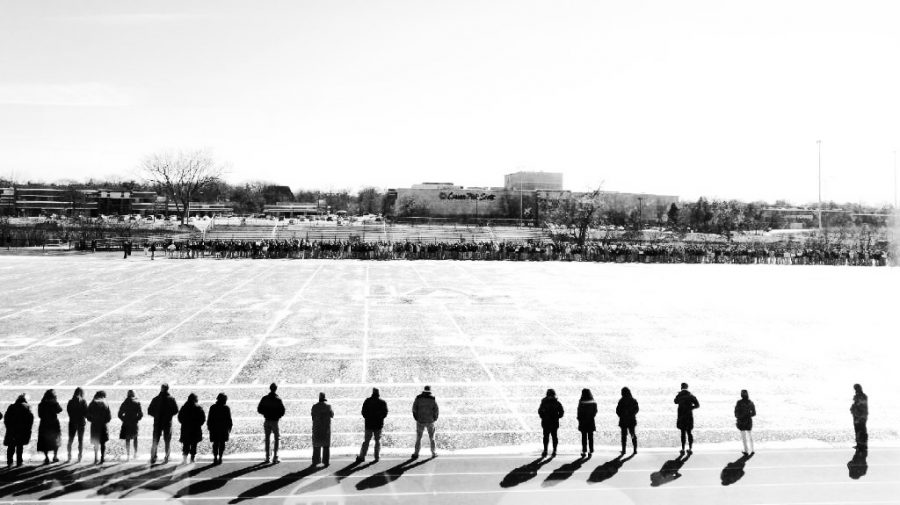Solidarity Day: Flop or a Bop?
Students and teachers walk out on March 14th 2018 in honor of the victims of the Parkland shooting.
March 19, 2019
It’s Monday morning, there are no classes or due dates, it’s 4th quarter, and we’re in the final few weeks before spring break—the temptation to play hooky must be overwhelming. Besides, who cares about Solidarity Day anyway? Monday, April 1st seems like the perfect opportunity to ditch school and treat yourself to a nice three-day weekend.
Maybe so, but don’t set any plans in stone yet, Ramblers! Solidarity Day 2019 is Loyola’s first school-wide event focusing solely on the concept of solidarity. This year’s theme takes a look at how the development of technology—something that we use daily and almost always take for granted—helps and hinders the growth of solidarity in society. That sounds a little cool, right? Loyola has invited several handfuls of speakers to come and present hands-on workshops for students to get engaged with and learn from. It’s a unique opportunity, and all you have to do is show up.
A lot of students may be confused on what the concept of solidarity really entails. When several students were asked how they defined the concept, they answered with “Unity,” “Together,” and “Standing for what you believe in.” Mr. Knoth, the driving force behind the 2019 solidarity event, describes solidarity as “being able to put yourself in someone else’s shoes; experiencing that, and then seeing it from their perspective.”
His goal for Solidarity Day is to teach students exactly that—how to put themselves in the positions of others and realize that their everyday decisions have an affect on others and on society. “We live because of human interaction,” says freshman Eva Dempsey, “If we weren’t around anyone, we would be awful people. We need to hear voices other than our own.”
The voices chosen for this year’s workshops include individuals speaking on technology for the blind or Syrian refugees, some on how releasing ourselves from technology is beneficial, even a cybercrime-fighting dog named Browser. The theme of Capturing the Power of Technology was chosen out of several others that had been brainstormed because technology is a tool we use so frequently in our everyday lives, and we can learn how to harness it to fulfill the Christian virtues of advocacy and companionship.
Many students, however, believe that the opportunity to head these speakers and experience these workshops is not appealing, but not simply because they would rather stay home. Senior Chase Boerke says that “students don’t learn the best from large gatherings or school-wide movements…they lack the individuality of learning something in class.” He says the large scale push to attend this event puts him and other students “off from caring” about it.
However, sophomore Julia Bogdanowicz believes that it is important for Loyola to make this a school-wide event because she and others have “no clue what [Solidarity] means, really.” Solidarity Day then becomes convoluted with the issue of its delivery and presentation, not just its intention.
Regardless, Mr. Knoth says that students should participate in and attend Solidarity Day because there’s something there for everyone. “That was my main goal,” he says. “You have to be here; it’s a school day, we’re taking attendance. You might as well just enjoy it.”


